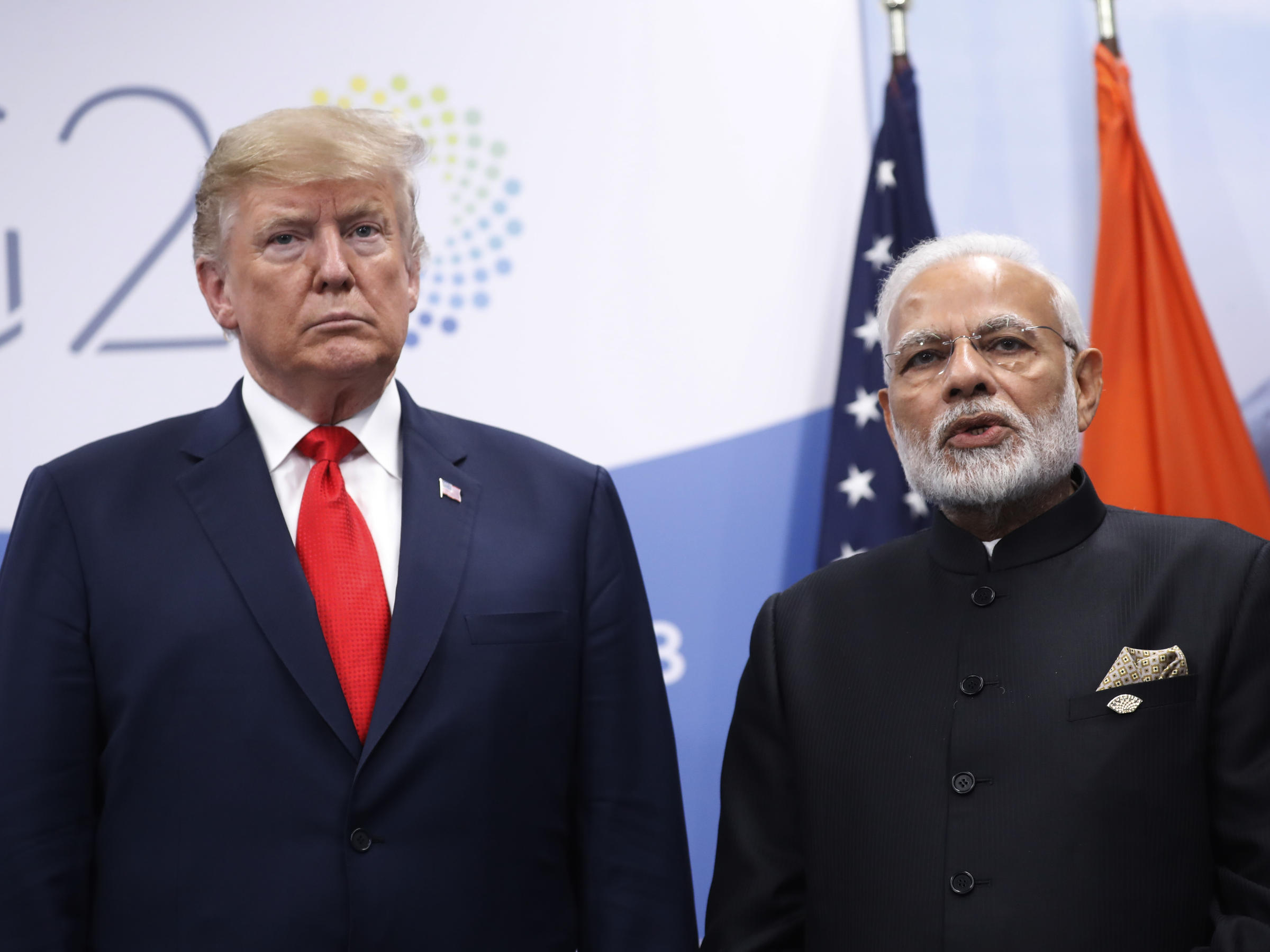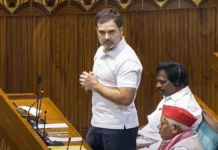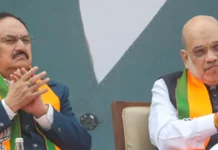OSAKA: Prime Minister Narendra Modi and President Donald Trump Friday “aired” their concerns over the bilateral trade disputes and agreed for an early meeting of their commerce ministers to sort out the issues, a day after the US leader demanded withdrawal of the “very high” tariffs levied by India on American goods.
Though trade is an important part of the booming bilateral relationship, a row over market access and tariffs has escalated in recent months, leading to fears of a protracted dispute.
On Thursday, President Trump said that India’s “very high” tariffs on US goods are “unacceptable” and must be withdrawn.
“I look forward to speaking with Prime Minister (Narendra) Modi about the fact that India, for years having put very high Tariffs against the United States, just recently increased the Tariffs even further. This is unacceptable and the Tariffs must be withdrawn!” Trump said in a tweet on his way to Osaka, to participate in the G20 Summit.
“The talks with @POTUS were wide ranging. We discussed ways to leverage the power of technology, improve defence and security ties as well as issues relating to trade,” Prime Minister Modi tweeted after his meeting with President Trump.
“India stands committed to further deepen economic and cultural relations with USA,” he said.
Briefing reporters on the Modi-Trump meeting, Foreign Secretary Vijay Gokhale said the issue of trade was discussed by the two leaders.
“There was a discussion on trade, both sides aired their concerns, both sides spoke about the interest of the other side and what was agreed was that the trade ministers of both countries would meet at an early date and would try and sort out these issues,” he said.
“The Prime Minister did mention in particular that we had taken some action after the Generalized System of Preferences (GSP) was revoked, that that was now something that already had happened and now we should now look forward and we should see how we can resolve some of these issues,” Gokhale said.
President Trump welcomed this idea, he said, noting that both US Trade Representative Robert Lighthizer and the Treasury Secretary Steven Mnuchin were in the room when the two top leaders met.
“So what we expect now (is) an early meeting and the level is still be decided whether it will be at the level of Commerce & Industry Minister and USTR or we will first have technical discussions, that is an issue to be decided,” the foreign secretary said.
“But essentially it was a very productive discussion, it was very open discussion and we will take things forward,” he added.
The Modi-Trump meeting assumes significance in the wake of the strain that has popped up in the bilateral relationship on a host of trade and economic issues.
On Wednesday, US Secretary of State Mike Pompeo, who was in New Delhi said that “great friends are bound to have disagreements”.
“We’ll keep working to resolve any economic disputes – not only those that we have at this moment, but those that with any significant trading relationship inevitably arise,” Pompeo said.
India has raised tariffs on 28 items, including almond, pulses and walnut, exported from the US in retaliation to America’s withdrawal of preferential access for Indian products.
President Trump terminated India’s designation as a beneficiary developing nation under the key GSP trade programme from June 5 after determining that New Delhi has not assured the US that it will provide “equitable and reasonable access” to its markets.
The Generalized System of Preference (GSP) is the largest and oldest US trade preference programme and is designed to promote economic development by allowing duty-free entry for thousands of products from designated beneficiary countries.
The Trump administration wants India to lower the trade barriers and embrace “fair and reciprocal” trade.
Trump has also criticised India’s high import tariff on the iconic Harley Davidson motorcycles as “unacceptable”.
Last February, India slashed the customs duty on imported motorcycles like Harley-Davidson to 50 per cent after Trump called it “unfair” and threatened to increase the tariff on import of Indian bikes to the US.
The government on June 21 last year decided to impose these duties in retaliation to the US decision of significantly hiking customs duties on certain steel and aluminium products. America, in March last year, imposed 25 per cent tariff on steel and a 10 per cent import duty on aluminium products.
Many US companies like Google, Mastercard, Visa and Amazon have raised concerns over the issue of data localisation and its impact on their operational cost.
In April last year, the Reserve Bank of India had issued a directive on ‘Storage of Payment System Data’. It had advised all system providers to ensure that within a period of six months, the entire data relating to payment systems operated by them is stored in a system only in India, for effective monitoring.
India has also dragged the US to the World Trade Organisation’s dispute settlement mechanism over the imposition of import duties on steel and aluminium.
India’s exports to the US in 2017-18 stood at USD 47.9 billion, while imports were at USD 26.7 billion. The trade balance is in favour of India. PTI






